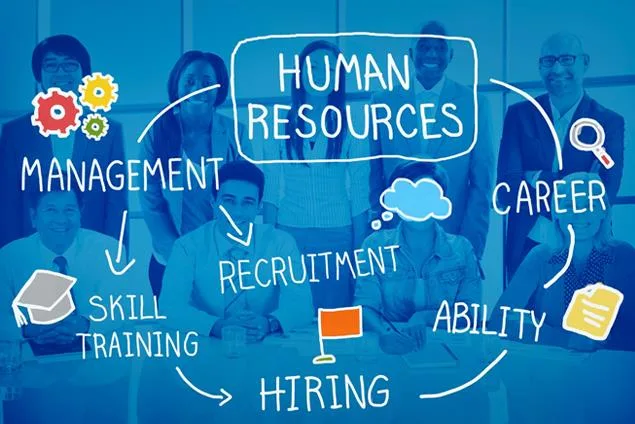Topics: 2025 Staffing Trends, Recruitment Outsourcing, Staffing Challenges, Staffing Solutions
Posted on December 04, 2024
Written By Ranjana Singh

With just one month left until 2025, the staffing industry is gearing up for another year of transformation and opportunity. As we approach the new year, it’s crucial for staffing firms to reflect on the challenges they’ve faced, identify emerging trends, and prepare for what lies ahead. From the growing impact of AI and automation to shifting labor market dynamics and evolving compliance requirements, 2025 promises to bring both hurdles and opportunities for those ready to adapt.
In this blog, we’ll explore the key staffing trends shaping the industry and the challenges firms must navigate to stay competitive. Whether it’s leveraging technology, addressing talent shortages, or adapting to new regulations, understanding what’s coming will be the difference between thriving and merely surviving. Let’s dive into the insights every staffing firm needs to succeed in 2025.
The demand for flexibility goes beyond remote and hybrid roles. Candidates now prioritize options like project-based contracts, four-day workweeks, and asynchronous schedules.
What It Means for Employers: To align with staffing industry trends, companies must rethink traditional structures and implement tools that support diverse work styles while maintaining productivity.
Job seekers are increasingly choosing employers whose values align with their own, emphasizing sustainability, ethics, and social impact.
What It Means for Employers: Highlighting your organization’s commitment to diversity and inclusion in staffing and sustainability will enhance employer branding, making your company more attractive in a competitive market.
Generative AI continues to revolutionize recruitment, assisting with candidate sourcing, resume screening, and job description optimization.
What It Means for Employers: Small and mid-sized companies can leverage AI tools to keep pace with staffing industry trends and challenges. However, maintaining a human touch in the hiring process is essential to foster trust and engagement.
Organizations are moving away from traditional degree-based qualifications, emphasizing skills and experience instead.
What It Means for Employers: Use competency assessments to identify top talent and expand your talent pool. This shift aligns with the future of staffing industry strategies that emphasize inclusivity and adaptability.
As automation transforms industries, continuous learning is becoming critical for both employees and employers.
What It Means for Employers: Providing robust training programs and professional development opportunities not only helps retain talent but also demonstrates a commitment to adapting to staffing industry challenges.
Businesses are embedding diversity and inclusion in staffing into their recruitment strategies, recognizing the value of diverse teams for innovation and growth.
What It Means for Employers: Incorporate inclusive language in job postings, offer unconscious bias training, and partner with organizations that support underrepresented groups. These practices are integral to staffing trends in 2025.
Remote work has opened up access to global talent, allowing companies to build diverse, skilled teams across borders.
What It Means for Employers: To meet the demands of the future of the staffing industry, invest in tools that ensure compliance with international hiring regulations and facilitate seamless global collaboration.
Clear and equitable pay structures are no longer optional—they are vital to building trust and attracting top talent.
What It Means for Employers: As part of the staffing industry overview, organizations must regularly benchmark salaries, address pay equity, and communicate compensation policies openly.
The focus on sustainability now extends into recruitment, with businesses prioritizing eco-conscious practices and green job creation.
What It Means for Employers: Highlight your sustainability efforts in job postings and consider roles dedicated to environmental initiatives to align with evolving staffing industry trends 2025.
Analytics tools are playing a significant role in shaping recruitment strategies, from evaluating job posting performance to predicting future hiring needs.
What It Means for Employers: Leveraging data for workforce planning and decision-making is crucial for staying competitive in the staffing industry trends and challenges landscape.
Technology will continue to streamline recruitment processes through AI-driven tools, predictive analytics, and virtual hiring platforms. Automation will enhance efficiency while enabling firms to focus on strategic decision-making and building stronger relationships with candidates.
Economic shifts will push businesses to embrace cost-effective recruitment models like outsourcing, contract hiring, and leveraging the gig economy. Staffing firms must remain agile and adapt to varying demands to ensure resilience.
To remain competitive, firms must prioritize flexibility, leverage the latest technology, and build a strong employer brand that emphasizes diversity and inclusion in staffing. Offering robust training programs and focusing on employee well-being are also critical.
AI and automation will revolutionize the staffing industry overview, enabling faster candidate screening, reducing biases, and enhancing decision-making. While automation will handle repetitive tasks, human interaction will remain essential to building trust and personal connections.
The staffing industry trends 2025 paint a picture of transformation driven by innovation and inclusivity. Employers who adapt to these trends and address staffing industry challenges proactively will secure a competitive edge. By integrating advanced technologies, prioritizing diversity and inclusion in staffing, and building resilient, flexible workforces, businesses can thrive in the evolving job market. Looking to stay ahead? Partner with us to streamline your recruitment process and align with the latest staffing industry trends for 2025.
Enjoyed our blog? Discover more about how our recruitment outsourcing process can slash your costs by up to 60%! Take the next step—book a call by entering your details.
Assistant Marketing Manager
Originally published Dec 04, 2024 08:12:32, updated Dec 22 2025
Topics: 2025 Staffing Trends, Recruitment Outsourcing, Staffing Challenges, Staffing Solutions